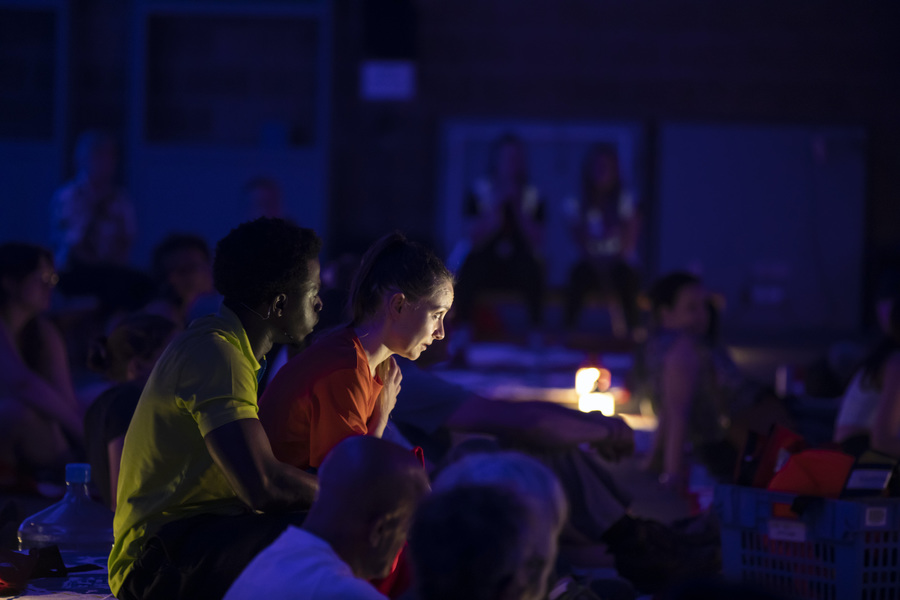Review: Muster Station: Leith
A classic Grid Iron performance

We arrive at Leith Academy, not far from the docks which, in six days time, will be breached by "The Big Wave". We shuffle through an airport-like "processing centre" run by "Devac", the new government department for evacuation. A woman from middle-class Corstorphine has paid for a "Climate Gentrification Pass" – a queue jump for the rich and, already, dividing lines begin to appear.
Short monologues from the border agents get to the heart of the politics of this: one is grimly Malthusian, the other deeply empathetic. We're separated out into groups, before beginning a promenade around a series of short scenes set in different locations of the school. There's a practical choreography at work here, but also a niggle: are the yellow group going to be evacuated before us? "You're doooooomed!" shouts the janitor, beautifully played as an internal monologue spoken out loud.
It's a classic Grid Iron performance that uses the resources of the physical space to dig at a human theme. This is never not a school, drawing parallels to the pandemic in which civic buildings were repurposed for mass events. But it's a lot more besides: an immigration centre on Finnish territory, in a scene which picks at what bureaucracies value compared to what's actually important ("facts, not hysterics"); the school swimming pool becomes an intimate and then tragic seaside experience; the staff room is a makeshift holding centre and the scene for an excruciating changing of places between an asylum seeker and a Home Office immigration worker, tying together complex threads around power, class, race, colonialism, climate in nuance and unforced style.
But, somehow, it doesn't quite add up to anything beyond interesting. Truly, we feel like observers rather than uncomfortable participants in this humanitarian catastrophe. An airport security queue is more genuinely alienating than our processing here. There's a lot of waiting around, which rather kills any tension. And a scene in which a resistance is plotted is inexplicably played for laughs. Theatrical motifs are clearly pointed (one on honey, another in which "my family" is repeated), but no further developed. A final scene which tries to push us to justified anger is too much of a long shot – we've not really been driven to that point.
 Floods of Fire with Electric Fields & the ASO
Floods of Fire with Electric Fields & the ASO
 Review: Time Machine
Review: Time Machine
 Review: Antigone in the Amazon
Review: Antigone in the Amazon
 Review: I Hide in Bathrooms
Review: I Hide in Bathrooms